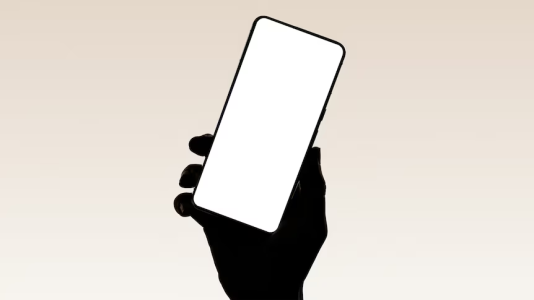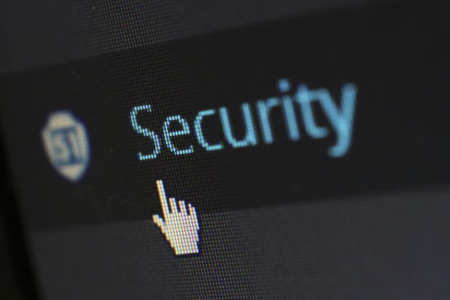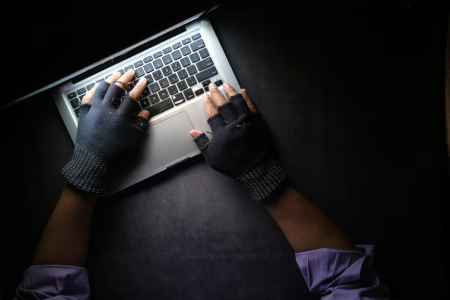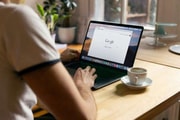First my passport and licence details were secretly compromised. Next someone stole my identity
By
ABC News
- Replies 0
No-one told me my identity had been stolen. No-one told me that my drivers licence and my passport, two of the most crucial personal documents, were compromised and had been for years. I only found out when I applied online for an eSIM.
Last June, I was transferring my mobile number to a major Australian phone company when my phone service cut out. Thankfully, I had access to another phone and was able to call the helpline, only no-one would speak to me. My account had been flagged for fraud and cancelled.
When I asked to speak to the fraud team I was told no, because I didn't have an account with them. "Because you cancelled it".
I tried to explain the situation as calmly as possible to the call centre operator who was just doing their job.
You'd like to think in moments like this that you wouldn't panic. But then you realise how reliant you are on the portable internet box that is your phone. Without it, suddenly you can't contact anyone, access your bank account or use two-factor authentication apps that lock you out if you don't send the correct code within 30 seconds.
Again, thankfully, I worked close to the city where there was a physical store for me to visit so I could prove my identity in person.
It was then I learned that someone had used my drivers licence to open mobile phone accounts in my name.
How did they get my drivers licence? No-one could say. All they could do was close the fraudulent accounts, restore my number and recommend I replace my licence.
In my mind that was the end of it. I was so relieved to have my mobile number back and a clear course of action. I also felt fortunate to have been able to resolve the issue in less than a day.
I kept thinking about how awful this would be for someone who didn't have the time to sit on hold chasing answers or time to visit a store during limited opening hours. How could someone who lived regionally or remotely easily prove who they were when the nearest store was hours away.
It all felt so outdated.
I had received a cheque and had no way to cash it. The only solution was to set up a new bank account and deposit it via the post office. This inconvenient process greatly contributed to me not recognising it was strange that the bank kept rejecting my online application with vague instructions to contact their help centre.
Life got in the way. Work was busy. Our cat died. We went on holiday. By the time I finally committed to getting the cheque sorted and calling the bank, months had passed.
When the operator told me a bank account already existed under my name, I cursed my stolen drivers licence and explained what had happened.
When they told me the account was not opened with my drivers licence but my passport, I felt ill.
It wasn't one account. It was multiple buy now, pay later accounts with hundreds of dollars in overdue payments. My credit score was trashed.
The fraudulent banking activity dated back two years. From the limited details I was given, I realised it was likely the same person who had set up the fraudulent phone accounts.
I will be forever grateful to the operator who, hearing me close to tears on the phone, told it to me straight: hacks are happening all the time, and you will never know where or when they got your information.
Some of my contact details like email addresses have been part of data breaches, but none of the breaches I am aware of have included systems that held my drivers licence and passport.
I am incredibly fortunate that the real-world impact of my identity theft was small — so far. What has been difficult to overcome is the feeling of uneasiness from not knowing what else someone may have used my identity for, or how easily it could be stolen again with far greater consequences.
Now my details are flagged to prevent further fraud and I am a reference number in an overwhelming collection of cybercrime case files that there are too few resources to pursue.
We live in a world where protection is proactive.
When I found out about my drivers licence, the phone company sent me a very long email with your standard fraud tips including changing your passwords.
The one line I wish I had paid attention to was to request a free copy of my credit report.
If I had done that at the time, it would have revealed the fraudulent banking activity.
The report takes only a few minutes to complete. Let this be the check that keeps your identity safe.
By Sarah
Last June, I was transferring my mobile number to a major Australian phone company when my phone service cut out. Thankfully, I had access to another phone and was able to call the helpline, only no-one would speak to me. My account had been flagged for fraud and cancelled.
When I asked to speak to the fraud team I was told no, because I didn't have an account with them. "Because you cancelled it".
I tried to explain the situation as calmly as possible to the call centre operator who was just doing their job.
You'd like to think in moments like this that you wouldn't panic. But then you realise how reliant you are on the portable internet box that is your phone. Without it, suddenly you can't contact anyone, access your bank account or use two-factor authentication apps that lock you out if you don't send the correct code within 30 seconds.
Again, thankfully, I worked close to the city where there was a physical store for me to visit so I could prove my identity in person.
It was then I learned that someone had used my drivers licence to open mobile phone accounts in my name.
How did they get my drivers licence? No-one could say. All they could do was close the fraudulent accounts, restore my number and recommend I replace my licence.
In my mind that was the end of it. I was so relieved to have my mobile number back and a clear course of action. I also felt fortunate to have been able to resolve the issue in less than a day.
I kept thinking about how awful this would be for someone who didn't have the time to sit on hold chasing answers or time to visit a store during limited opening hours. How could someone who lived regionally or remotely easily prove who they were when the nearest store was hours away.
It all felt so outdated.
First my drivers licence, then my passport
Ironically the thing that alerted me to the greater theft of my passport was a cheque.I had received a cheque and had no way to cash it. The only solution was to set up a new bank account and deposit it via the post office. This inconvenient process greatly contributed to me not recognising it was strange that the bank kept rejecting my online application with vague instructions to contact their help centre.
Life got in the way. Work was busy. Our cat died. We went on holiday. By the time I finally committed to getting the cheque sorted and calling the bank, months had passed.
When they told me the account was not opened with my drivers licence but my passport, I felt ill.
It wasn't one account. It was multiple buy now, pay later accounts with hundreds of dollars in overdue payments. My credit score was trashed.
The fraudulent banking activity dated back two years. From the limited details I was given, I realised it was likely the same person who had set up the fraudulent phone accounts.
Why did no-one tell me?
How did someone get so much of my personal information? How did these accounts not set off any red flags? Why did no-one tell me?I will be forever grateful to the operator who, hearing me close to tears on the phone, told it to me straight: hacks are happening all the time, and you will never know where or when they got your information.
Some of my contact details like email addresses have been part of data breaches, but none of the breaches I am aware of have included systems that held my drivers licence and passport.
I am incredibly fortunate that the real-world impact of my identity theft was small — so far. What has been difficult to overcome is the feeling of uneasiness from not knowing what else someone may have used my identity for, or how easily it could be stolen again with far greater consequences.
Now my details are flagged to prevent further fraud and I am a reference number in an overwhelming collection of cybercrime case files that there are too few resources to pursue.
We live in a world where protection is proactive.
When I found out about my drivers licence, the phone company sent me a very long email with your standard fraud tips including changing your passwords.
The one line I wish I had paid attention to was to request a free copy of my credit report.
If I had done that at the time, it would have revealed the fraudulent banking activity.
The report takes only a few minutes to complete. Let this be the check that keeps your identity safe.
By Sarah










